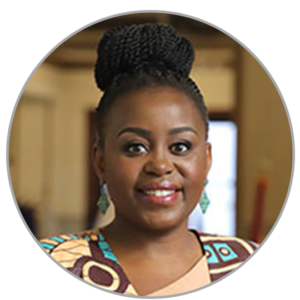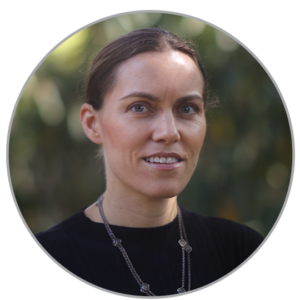This will be a candid dialogue on respectful scientific communication, in media & social media. A skilled moderator will explore how different judgments, values, evolving data and uncertainty were considered and communicated during the pandemic. Different perspectives will be considered in the context of where we were in the pandemic at that time.
The opinions expressed by the panelists at this session do not necessarily represent the opinions of IDSA, SHEA, HIVMA, PIDS, SIDP and the IDWeek Program Committee. The mission of IDSA, SHEA, HIVMA, PIDS, SIDP and the IDWeek Program Committee is the equitable and optimal management of infectious diseases.

Dr. Paul E. Sax is clinical director of the Division of Infectious Diseases at Brigham and Women’s Hospital and professor of medicine at Harvard Medical School. He holds the Bruce A. Beal and Robert L. Beal Distinguished Chair in Infectious Diseases. He is editor-in-chief of Clinical Infectious Diseases, section editor of HIV/AIDS in UpToDate, on the editorial board of NEJM Journal Watch Infectious Diseases (where he writes the HIV and ID Observations blog) and on the editorial advisory board of Medscape HIV/AIDS. Dr. Sax is the associate program director for the Mass General Brigham fellowship in infectious diseases, is on the core faculty of the International Antiviral Society – USA, and teaches regularly on HIV and infectious diseases locally, nationally and internationally. In addition to his clinical practice and teaching, Dr. Sax’s ongoing areas of research include clinical trials of antiretroviral therapies, cost-effectiveness of management strategies for HIV and toxicity of antiretroviral therapy.

Carlos del Rio, MD is a Distinguished Professor of Medicine in the Division of Infectious Diseases at Emory University School of Medicine and Professor of Global Health and Epidemiology at the Rollins School of Public Health. He is also Executive Associate Dean for Emory at Grady, PI and co-Director of the Emory Center for AIDS Research (CFAR) and co-PI of the Emory-CDC HIV Clinical Trials Unit and the Emory Vaccine Treatment and Evaluation Unit. Dr. del Rio is a native of Mexico where he attended medical school at Universidad La Salle, graduating in 1983. He did his Internal Medicine and Infectious Diseases residencies at Emory University. In 1989 he returned to Mexico where he was Executive Director of the National AIDS Council of Mexico (CONASIDA, the Federal agency of the Mexican Government responsible for AIDS Policy throughout Mexico), from 1992 through 1996. In November of 1996 he returned to Emory where he has been involved in teaching and research. Dr. del Rio was Chief of the Emory Medical Service at Grady Memorial Hospital from 2001-2009 and Chair of the Hubert Department of Global Health from 2009-2019. His research interests include the epidemiology of opportunistic infections in HIV and other immune deficiencies the epidemiology and transmission dynamics of HIV and other sexually transmitted diseases and issues related to early diagnosis of HIV, access to care and compliance with antiretrovirals.
Dr. del Rio is a Member of the Scientific Advisory Committee of the Latin-American AIDS Initiative (SIDALAC), Member of the Monitoring of the AIDS Pandemic (MAP) Network, Member of the Board of the IAS-USA, member of the UNAIDS Scientific Technical Advisory Committee and Chair of the PEPFAR Scientific Advisory Board. He is Associate Editor for Clinical Infectious Diseases and Senior Editor for HIV for NEJM Journal Watch Infectious Diseases as well as an editorial board member of Global Public Health, Journal of AIDS and Women, Children & HIV. He has co-authored 5 books, 30 book chapters, and over 500 scientific papers.

Dr. Baruch Fischhoff is the Howard Heinz University Professor in the Department of Engineering and Public Policy and the Institute for Politics and Strategy at Carnegie Mellon University. A graduate of the Detroit Public Schools, he holds a BS (mathematics, psychology) from Wayne State University and a PhD (psychology) from the Hebrew University of Jerusalem. He is a member of the National Academy of Sciences and the National Academy of Medicine. He is past president of the Society for Judgment and Decision Making and of the Society for Risk Analysis. He has chaired the Food and Drug Administration Risk Communication Advisory Committee and been a member of the Eugene (Oregon) Commission on the Rights of Women, the Department of Homeland Security Science and Technology Advisory Committee and the Environmental Protection Agency Scientific Advisory Board, where he chaired the Homeland Security Advisory Committee. He has received the American Psychological Association Award for Distinguished Contribution to Psychology, Carnegie Mellon’s Ryan Award for Meritorious Teaching, a Doctorate of Humanities honoris causa from Lund University, an Andrew Carnegie Fellowship and the Sigma Xi William Procter Prize for Scientific Achievement. He is a fellow of APA, the American Association for the Advancement of Science, the Association for Psychological Science, the Society of Experimental Psychologists and the Society for Risk Analysis. His books include Acceptable Risk (1981), A Two-State Solution in the Middle East (1993), Risk: A Very Short Introduction (2011), Communicating Risks and Benefits (2011) and Counting Civilian Casualties (2013). He has served on many committees of the National Academies, including recent ones on science communication, intelligence analysis, cybersecurity, global change and pandemic disease.

Dr. Matifadza Hlatshwayo Davis is the director of health for the city of St. Louis. Dr. Hlatshwayo Davis received her medical degree from Cleveland Clinic Lerner College of Medicine and a master of public health degree from Case Western Reserve University. She completed her internal medicine residency at University Hospitals Case Medical Center. She went on to complete her infectious diseases fellowship at the Washington University School of Medicine, also completing a one-year dedicated non-ACGME HIV fellowship and a two-year dedicated sexually transmitted infections fellowship.
At the Washington University School of Medicine, she was a clinical instructor, the associate program director of the Division of Infectious Diseases fellowship program and served in the leadership of the Office of Inclusion and Diversity. She was also an infectious diseases physician at the John Cochran VA Medical Center, where she was the lead HIV clinician, graduate medical education coordinator and outpatient parenteral antibiotic therapy supervisor.
Her passion for community engagement, health equity and patients with HIV culminated in her becoming the co-chair for the Fast Track Cities initiative in St. Louis, and she was later appointed to the St. Louis Board of Health. Dr. Hlatshwayo Davis is now a national and international medical contributor on COVID-19 with a particular focus on marginalized populations and has been featured in outlets such as CNN, BBC, Al Jazeera, MSNBC and Newsweek, among others. She is also an associate editor for disparities and competent care for IDSA’s and the Centers for Disease Control and Prevention’s COVID-19 Real-Time Learning Network.

David Leonhardt is a senior writer for The New York Times. He writes The Morning, the Times’s flagship daily newsletter, and also writes for Sunday Review. He has worked at the Times since 1999 and has previously been an op-ed columnist, Washington bureau chief, co-host of “The Argument” podcast, founding editor of The Upshot section and a staff writer for The Times Magazine. He also led a strategy group that helped Times leadership shape the newsroom’s digital future. In 2011, he received the Pulitzer Prize for commentary. He is a third-generation native of New York City.

PC: Rachel Hulin
Dr. Emily Oster is a professor of economics at Brown University and the author of The Family Firm: A Data-Driven Guide to Better Decision Making in the Early School Years, Cribsheet: A Data-Driven Guide to Better, More Relaxed Parenting, From Birth to Preschool, and Expecting Better: Why the Conventional Pregnancy Wisdom Is Wrong — and What You Really Need to Know. She writes the newsletter ParentData and her work has been featured in The New York Times, The Wall Street Journal, The Washington Post, The Atlantic and Bloomberg. She has two children.